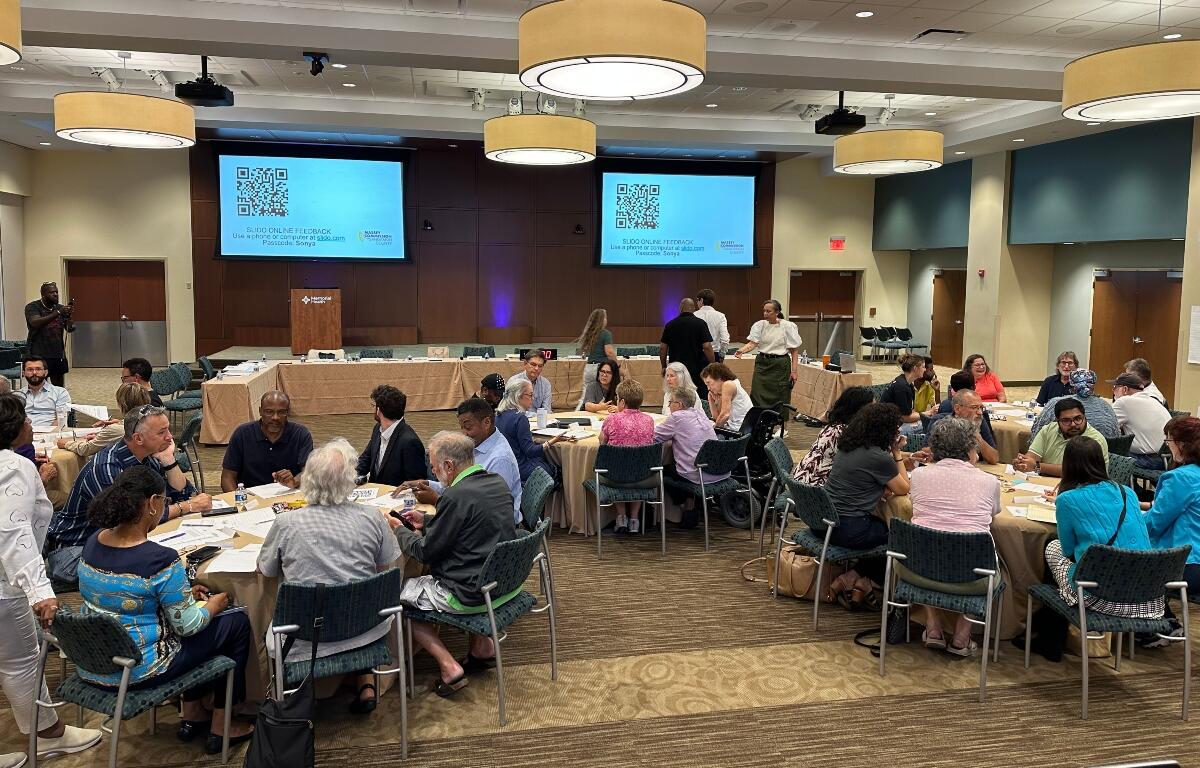Springfield, IL (CAPITOL CITY NOW) – There’s a lot for the public and local leaders, now that the commission formed in the wake of last year’s deputy-involved shooting death of Sonya Massey is nearing its end.
The public got to look at what’s been done Monday night, and recommendations that will be made to improve various areas.
Massey Commission Managing Director, Dr. Kelly Hurst, says a litany of calls to action from four different areas of concern need to be acted on, as reminded through a book put out following the Ferguson, Missouri riots.
“Historically, these commissions are appointed to calm the public, and give the impression that the government is doing something, that they give the appearance of action. But, they’re little more than a tool to maintain the status quo,” read Hurst. “And that, ‘social and racial issues in the cities are not addressed, actually, by the commission.'”
Hurst says unlike some other commissions in other areas, race relations must improve in the community, or potentially nothing else will.
While there were four different areas the Massey Commission worked on following Sonya’s death a year ago, one of the most important areas was in the area of law enforcement. This, as the now-former deputy who shot and killed Massey awaits trial.
Commission Co-Chair Joann Johnson says one finding suggests law enforcement might not be the group to respond to people in mental health crises.
“We felt that as many other states have done, we should work on trying to adopt, or launch, a county-wide alternative response program,’ said Johnson.
Johnson says when sheriff’s deputies showed up at Massey’s door in July of last year, she was extremely hesitant to let them in — to the point that she called dispatch a second time before letting them in.
Johnso says other states have successfully started such alternative response programs, and they’ve worked.
While providing more training to dispatchers was among the recommendations made Monday, Johnson says a bigger problem is that police officers aren’t uniformly held very accountable for some of their actions.
“Even though that there are steps in place for officer de-certification to happen, no one is really minding the store,” said Johnson. “There’s no way to determine if departments are actually reporting when an officer should be subjected to de-certification. There’s no penalty for these organizations not reporting. That needs to be shored up quite a bit.”
Johnson says they also recommend a publicly-accessible database for incidents of potential officer misconduct. Another recommendation was that some officer training should be given before they leave the academy, and not, in some cases, after a couple of years of work on the street — especially in the area of de-escalation.
More data and transparency for the public was something that came up a lot Monday night in a number of areas.
We will bring you further stories from Monday night’s meeting later Monday on WTAX and CapitolCityNow.com.



